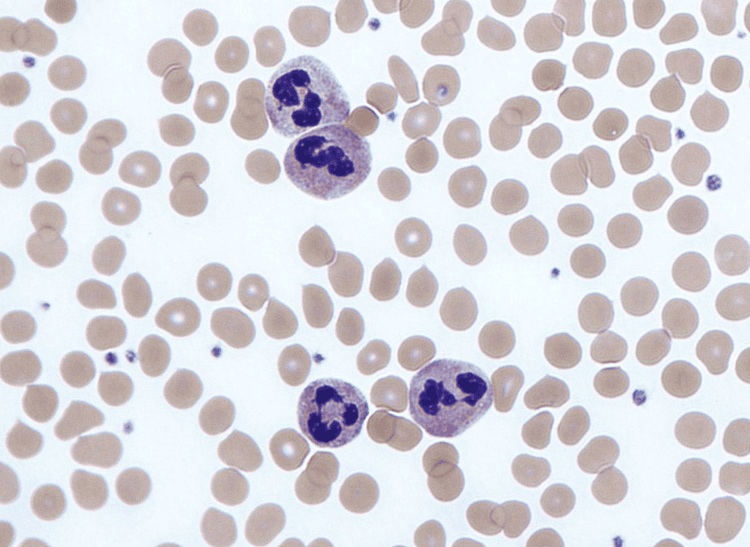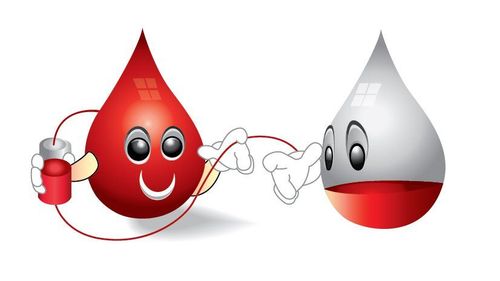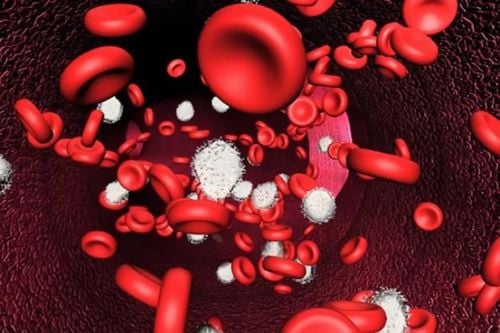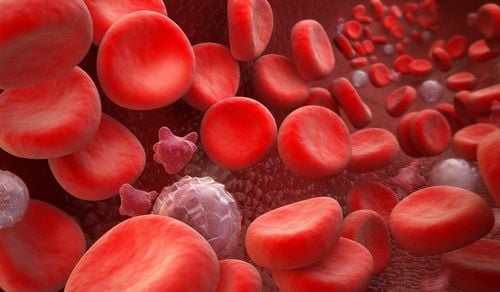This is an automatically translated article.
White blood cells are one of the cellular components of the blood that have an immune function to protect the body against the invasion of agents such as bacteria, viruses, parasites,... Besides there are also Many types of white blood cells such as neutrophils, lymphocytes, monocytes, eosinophils, and basophils respond to different types of bacterial agents with different changes.
1. What are neutrophils?
Neutrophils are a common type of white blood cell produced by the bone marrow and have the important function of phagocytosis to help attack bacteria as soon as these organisms enter the body. In normal blood neutrophils have a value of about 2-8 g/l, equivalent to 43-76% of the total leukocytes.
Neutrophil counts are used in clinical practice to inhibit the body's ability to fight infections, especially bacterial infections. Patients were identified as having neutropenia when the absolute blood count was below 2000/μl and an increased risk of infection when the count was below 1000/μl. The decrease in neutrophils may be due to decreased production or increased peripheral destruction.
2. Types of neutropenia
There are 4 main types of neutropenia:
Congenital neutropenia: A condition where neutropenia is present at birth in children also known as Kostmann syndrome. The disease causes very low levels of neutrophils in the blood of young children, leading to the risk of serious infections. Cyclic neutropenia: Still a type of leukopenia from birth, but cyclic neutropenia will cause the neutrophil count to change over a 21-day cycle. The white blood cell count will drop from normal to low and may last several days, the rest of the time the white blood cell count will be normal and the cycle restarts from scratch. Autoimmune neutropenia: When the body produces antibodies against neutrophils causing the white blood cell count to drop rapidly Idiopathic neutropenia: These are types of leukopenia that can develop at any time. at any time, in any subject but for unknown reasons.

Hình ảnh tế bào bạch cầu hạt trung tính
3. What causes neutropenia?
Neutropenia due to decreased production:
Due to problems in the bone marrow that reduce neutrophil production Lack of nutrition, B12 deficiency, folate Children are born with problems related to production Blood cell production Leukemia, myelodysplasia, aplastic anemia, bone marrow infiltrates affecting the bone marrow Bone marrow failure Chemotherapy or radiation therapy. Neutropenia due to increased peripheral destruction:
Infections such as tuberculosis, dengue fever Viral infections: Epstein-Barr, cytomegalovirus, HIV, viral hepatitis Targeted by the body's immune system on neutrophils: Crohn's disease, rheumatoid arthritis or Lupus disease Hypersplenism (Felty's syndrome, congestive splenomegaly, Gaucher's disease) In addition, neutropenia caused by the use of certain drugs such as : Antibiotics, blood pressure drugs, psychiatric drugs, epilepsy drugs,...
4. How to treat neutropenia?
Treatment for neutropenia depends on the severity and cause of the condition. In mild cases of neutropenia, no treatment may be necessary. Possible treatments for neutropenia are:
Antibiotics to treat bacterial infections if the cause is primarily an infection

Kháng sinh điều trị nhiễm trùng do vi khuẩn được chỉ định và kê đơn bởi bác sĩ chuyên khoa
The method uses granulocyte colony-stimulating factor (G-CSF) to help stimulate the bone marrow to make more white blood cells. The method used for certain types of neutropenia, including congenital, saves many lives in young children. Changes in medication if neutropenia is drug-induced Agranulocytosis Stem cell transplants help control treat certain types of severe leukopenia caused by bone marrow problems.
Please dial HOTLINE for more information or register for an appointment HERE. Download MyVinmec app to make appointments faster and to manage your bookings easily.
SEE ALSO
High white blood cells warn of what disease? In what cases is the white blood cell decreased? What is the number of white blood cells in the body?













